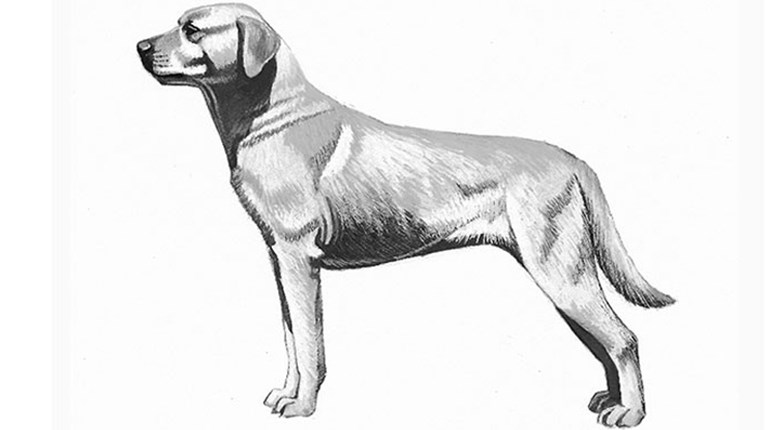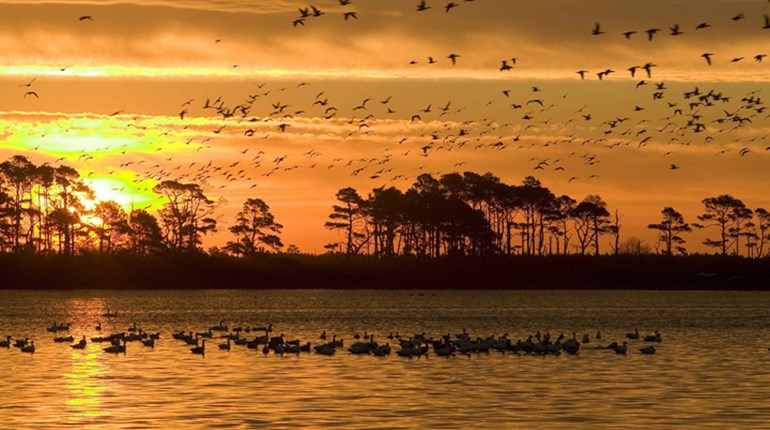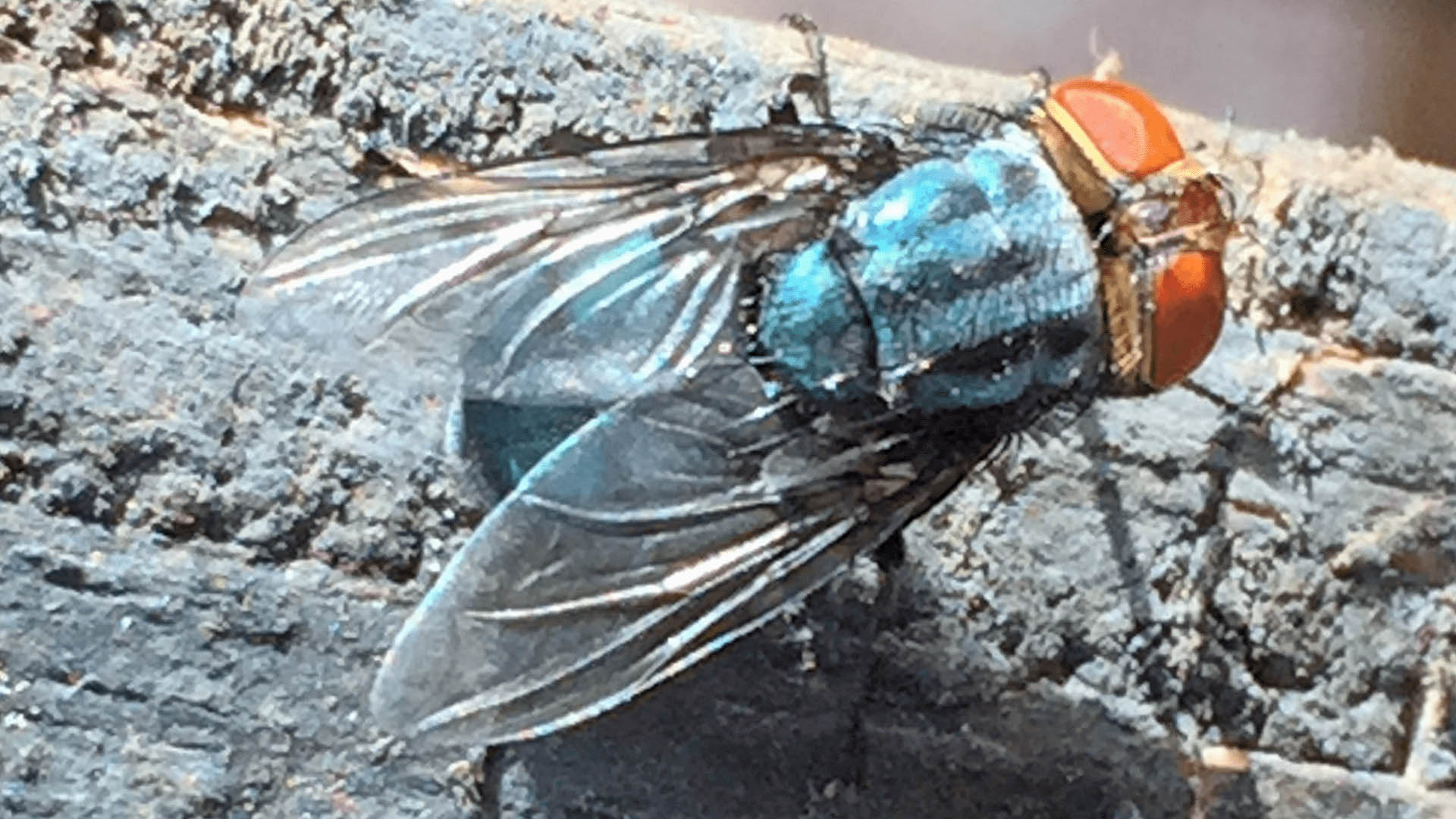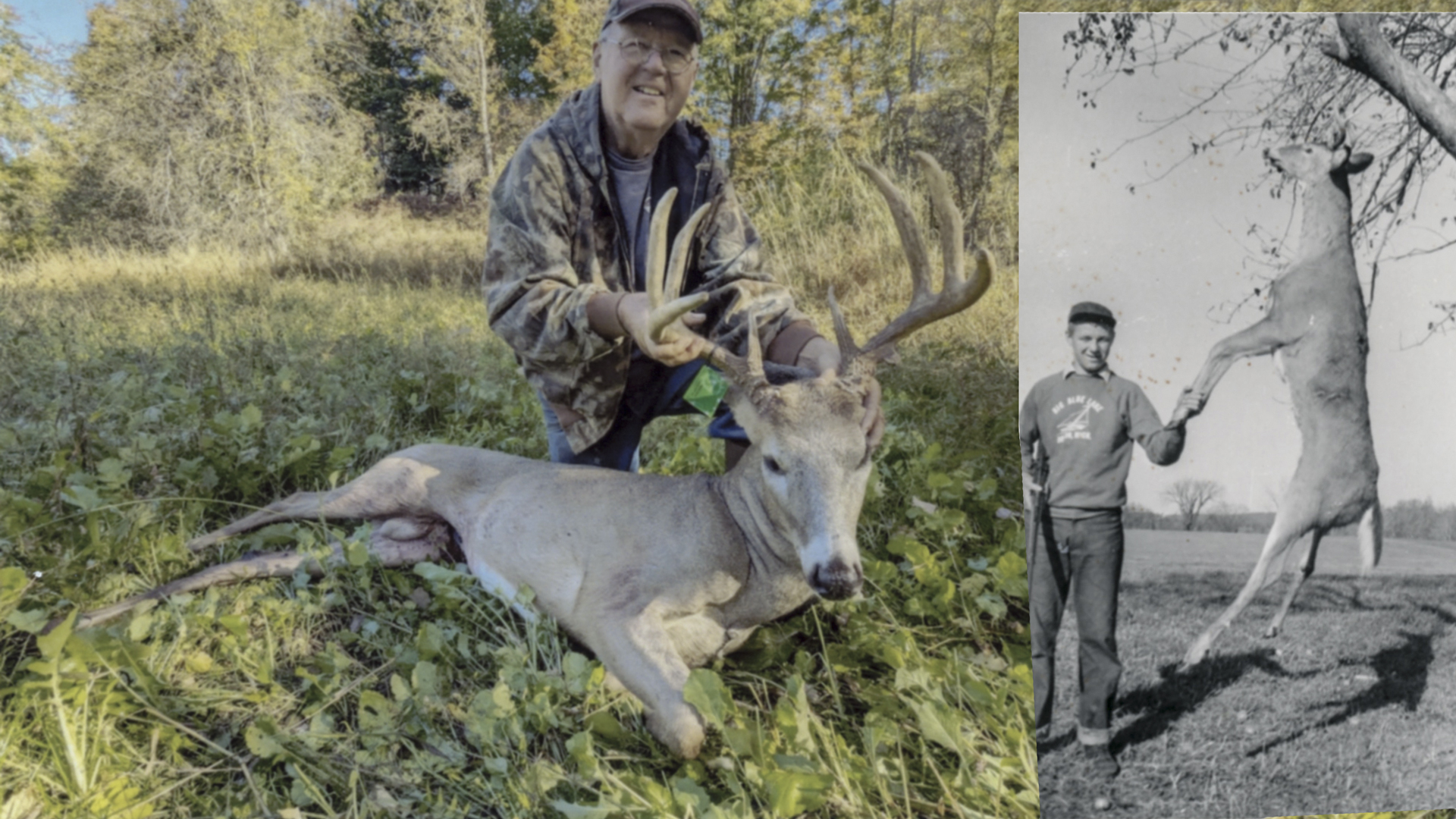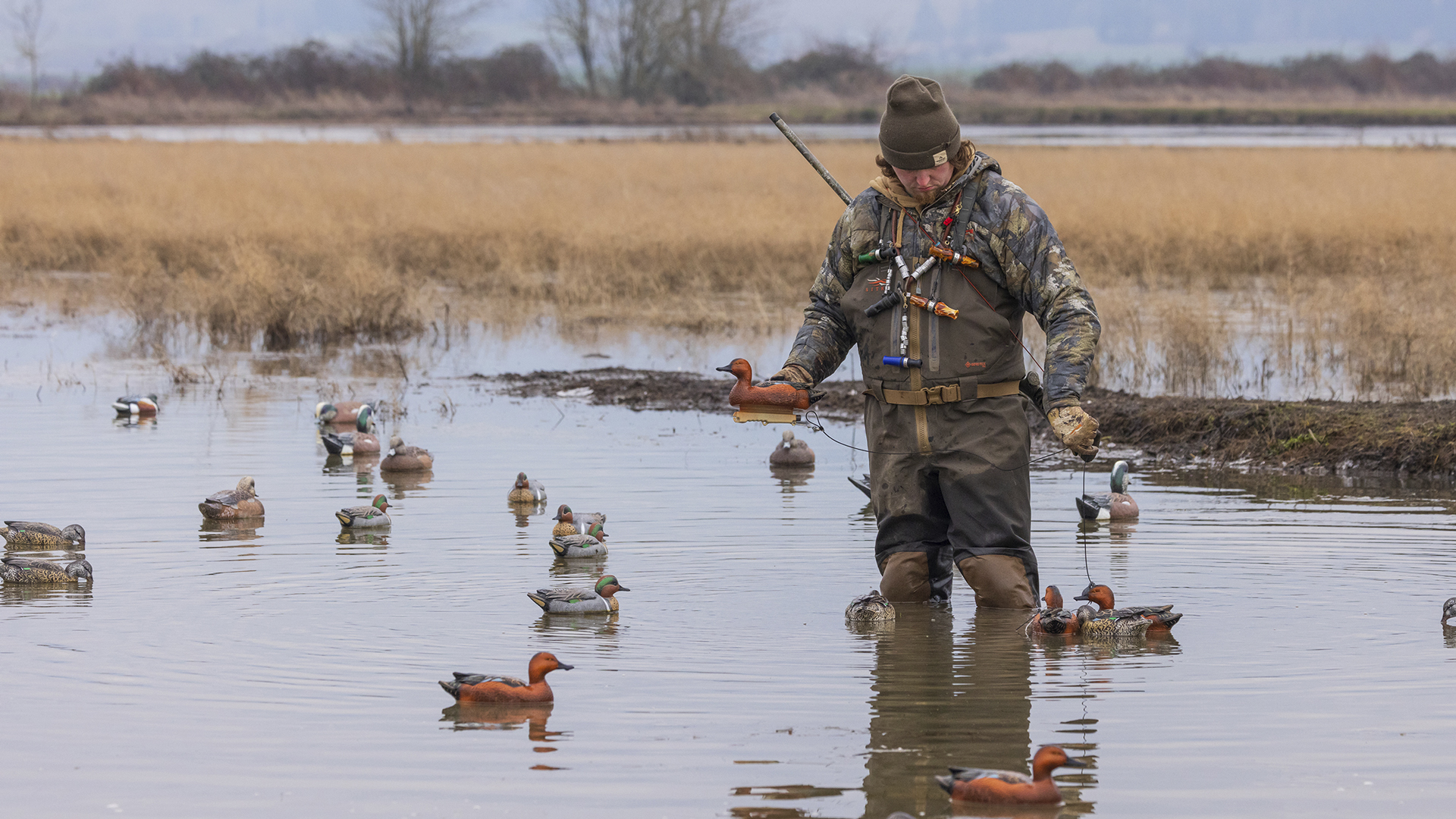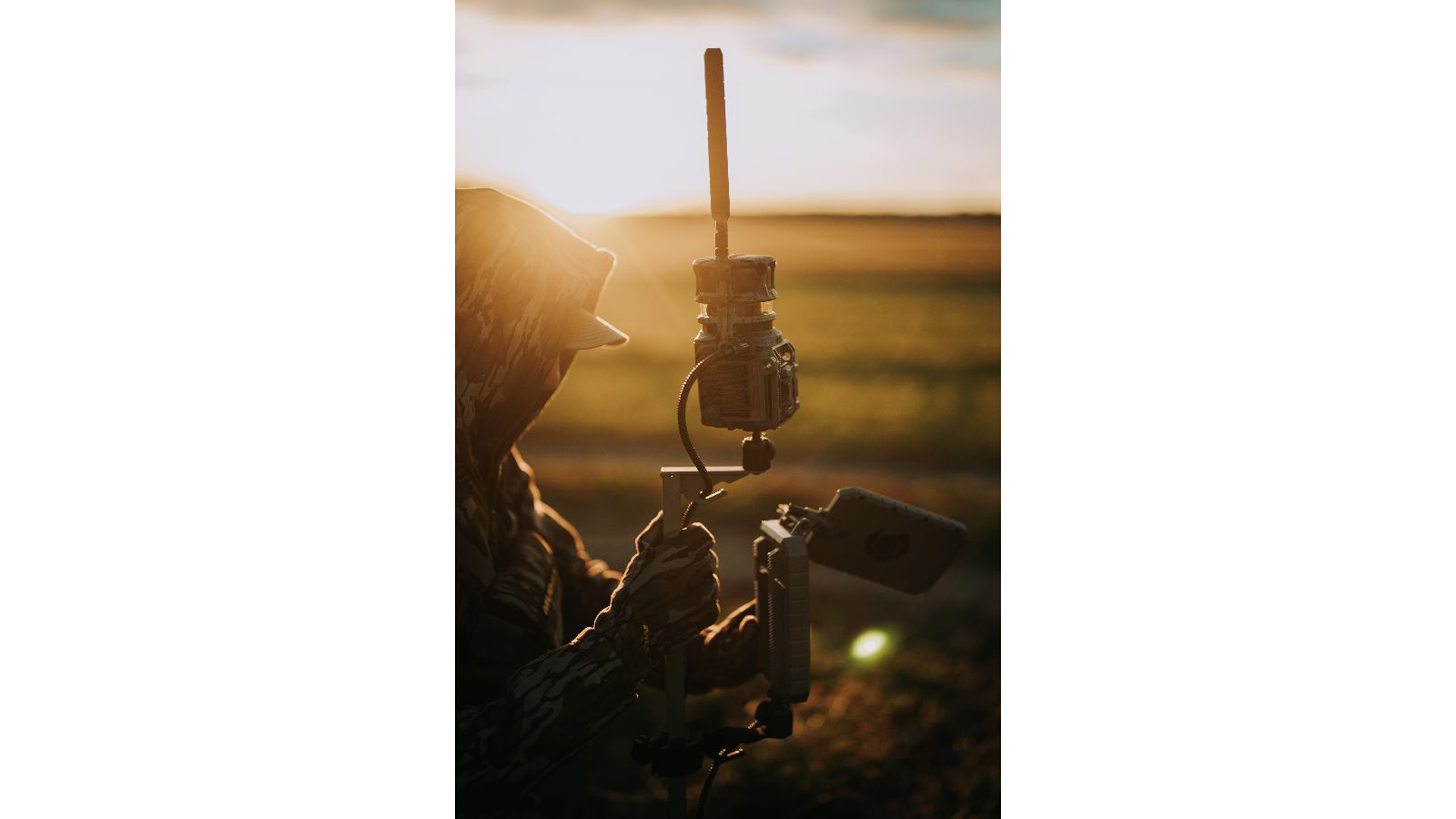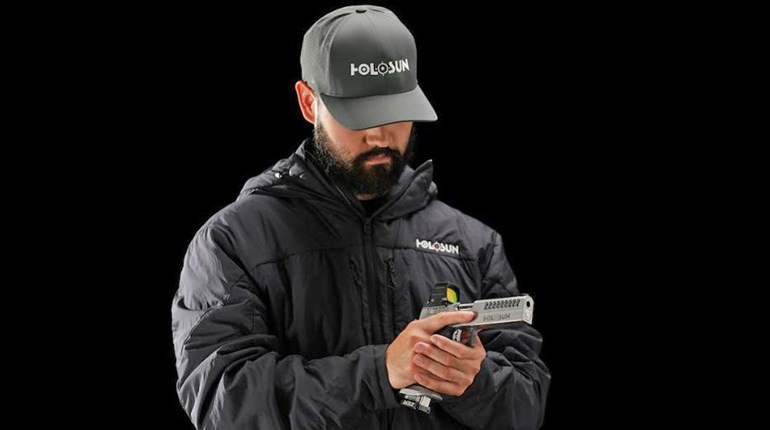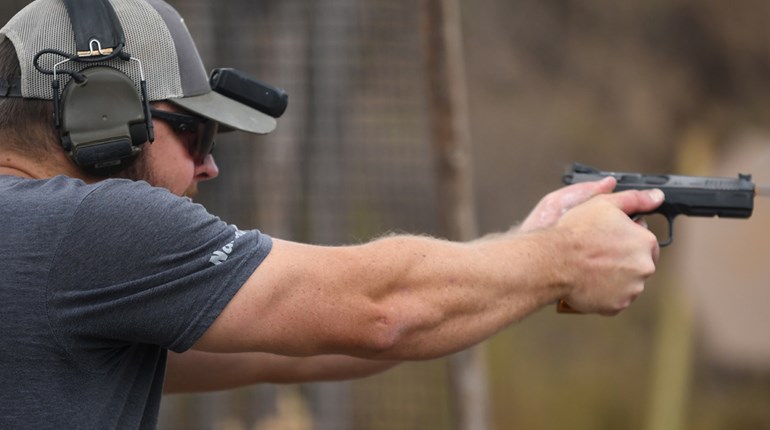
Army National Guard veteran Darin Welker says his 14 pet ducks are the only thing helping him overcome Iraq War injuries—but now the borough of West Lafayette, Ohio, is threatening to take them away. It's just the latest hurdle for Welker in a recovery that's been rife with challenges.
"I came back (from Iraq) with a major back injury, and between the back injury and the (post-traumatic stress disorder) that I also brought home, there were numerous problems," he told the Associated Press.
In 2012, the U.S. Department of Veteran Affairs (VA) paid for Welker's back surgery—but, according to Welker, it did not approve the physical therapy recommended by Welker's surgeon or the mental therapy Welker was certain he needed.
So, Welker decided he'd find an alternate source of therapy: In March he bought 14 ducks, which he's cared for since.
"Taking care of them is both mental and physical therapy," Welker told the AP. "(Watching them) keeps you entertained for hours at a time."
Yet, the borough of West Lafayette told Welker his ducks had to go, citing a local ordinance. On June 23, he was charged with a minor misdemeanor carrying a fine of up to $150 for housing "chickens, turkeys, ducks, live poultry or fowl of any kind, horses, ponies, cows, calves, goats, sheep, or live animals of any kind except dogs, cats, gerbils, hamsters, guinea pigs, birds or mice."
But Welker isn't giving up his ducks without a fight. He told AP that he has obtained a letter from the VA recommending he keep the ducks. And he's managed to get the story into national headlines. One has to wonder whether West Lafayette regrets bringing the charge now that USA Today, Time magazine, the Associated Press and other major media outlets have covered the town's pursuit of a wounded veteran's ducks.
Welker has also brought to light some apparent hypocrisy on the part of West Lafayette. In 2013, an exception to the law was made allowing a woman with scoliosis and her daughter, who has spina bifida, to keep their therapeutic pot-bellied pig.
And it seems the borough may be caving. Welker's municipal court hearing, originally scheduled for July 23, was continued for 60 days.
"The village is in agreement and willing to negotiate a new village ordinance for animal therapy," Welker's attorney, Robert Weir, told local NBC affiliate WPTV.
According to WPTV, town council member Ron Lusk—a veteran himself—could not confirm that, but he did say the council and mayor are reviewing the ordinance to see if any changes are needed.
Welker is pleased by the support his case has received. A stranger in Pennsylvania is even paying his court costs.
"I think this shows that it's important to stand up and fight for what's right," Welker told WPTV.













